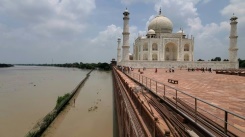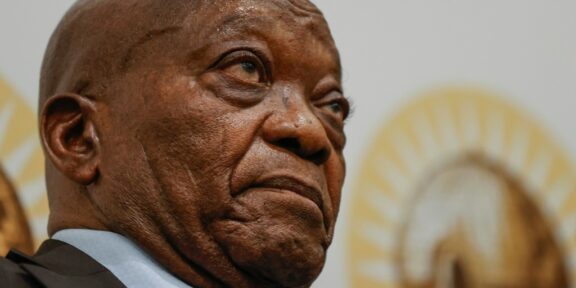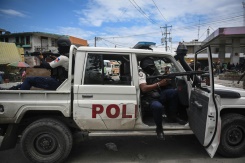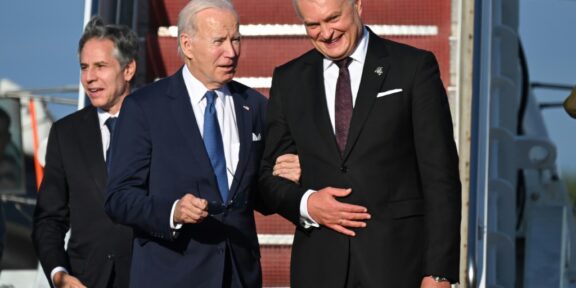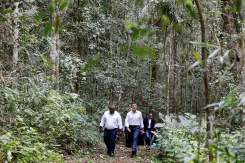
France’s President Emmanuel Macron stripped off his suit jacket Friday to wander the wild forests of Papua New Guinea on a green-tinted charm offensive in the South Pacific.
Macron is telling Pacific leaders that France understands the threat they face from a warming Earth, from rising seas swamping low-lying islands to a loss of wildlife, wilder weather and the financial costs they impose.
It is a message he has already pushed on his first two Pacific stops, on the eroded coastline of the French territory of New Caledonia and in the sea-threatened archipelago of Vanuatu where he joined a call for the phasing out of fossil fuels.
In Papua New Guinea, Macron wore no jacket, and at one point no tie, as he walked two kilometres (more than a mile) with Prime Minister James Marape through the lush Varirata National Park, touting a French initiative to remunerate countries that preserve their old-growth forests.
Natural forest covers 14 percent of the Earth’s surface and is a huge reservoir of stored carbon, which is released when burned — “so that in a way we go backwards”, Macron said.
The world already finances reforestation, he said, arguing that there is no economic model to preserve the woodlands that already exist.
To address this, a first so-called Forest, Climate, Biodiversity project was signed Friday with Papua New Guinea, to be managed by the French development agency with 60 million euros ($66 million) in financing from the European Union.
Other non-governmental organisations are already aboard, French officials say, and they hope to get the private sector involved, too.
The challenge is significant.
- ‘Rainforest destruction’ –
Papua New Guinea, more than 70 percent blanketed in trees, boasts an extraordinary array of wildlife on land and water, from tree kangaroos to spiny anteaters.
Scientists say deforestation is one of the greatest threats to that unique environment.
Papua New Guinea, home to a major logging industry, lost 1.8 percent of its carbon-absorbing rainforest last year, according to an analysis of satellite data released last month by the World Resources Institute.
That put it at number nine on the global list of nations with the greatest rainforest destruction — with Brazil in the lead.
Macron’s environmental push in the South Pacific is not unique: others including the United States, China, Australia and New Zealand finance significant climate change aid in Pacific island states.
But his offer of recompense for the preservation of Papua New Guinea’s forest was welcomed.
“It was not just a walk in the park,” Marape said.
“It was a statement we were making to the world, that forests of this Earth need to be managed, preserved and harvested in the right manner.”
The Papua New Guinea leader said unsustainable logging “is not supported by my government”.
At the final stop on their forest walk, not far from the capital Port Moresby, the leaders came to a breathtaking panorama of partially forested hills stretching into the distance, newly rebaptised in the VIP visitor’s honour: “Emmanuel Jean-Michel Frederic Macron Lookout”.




